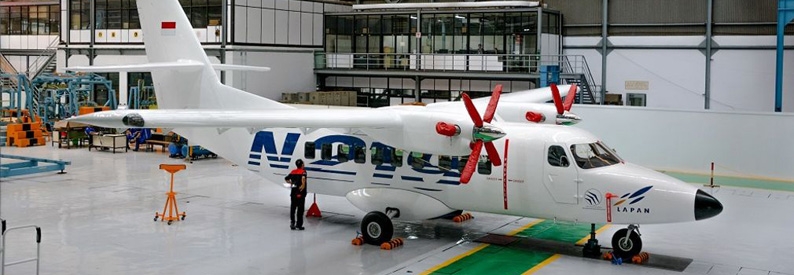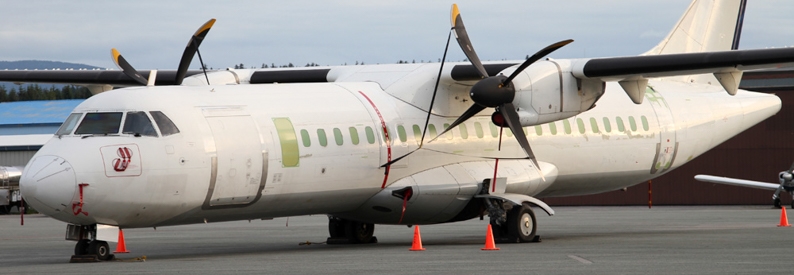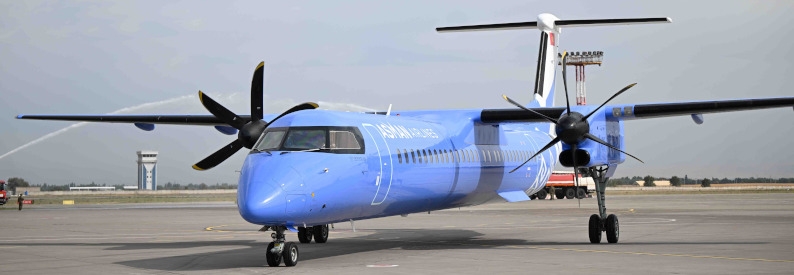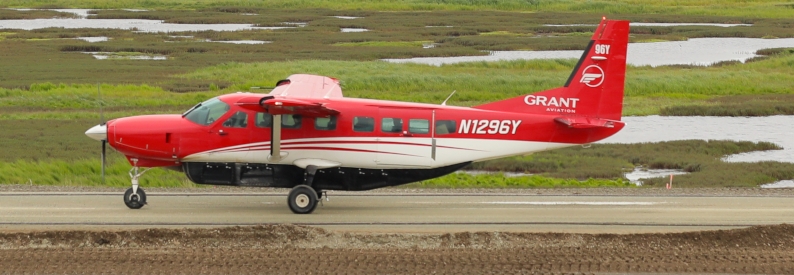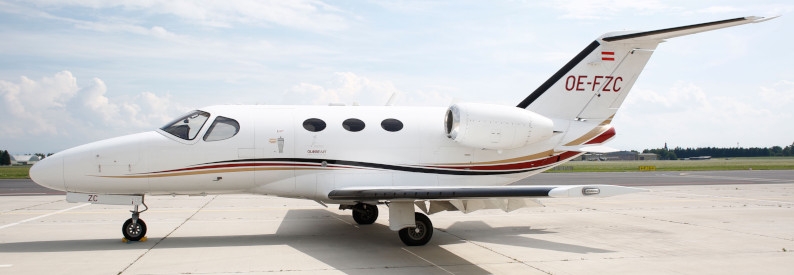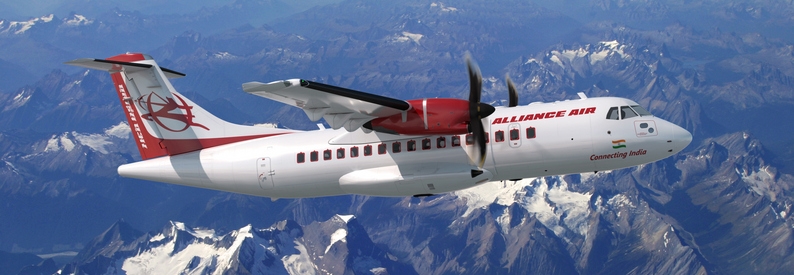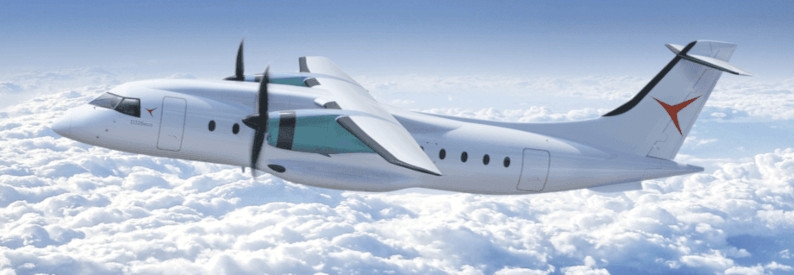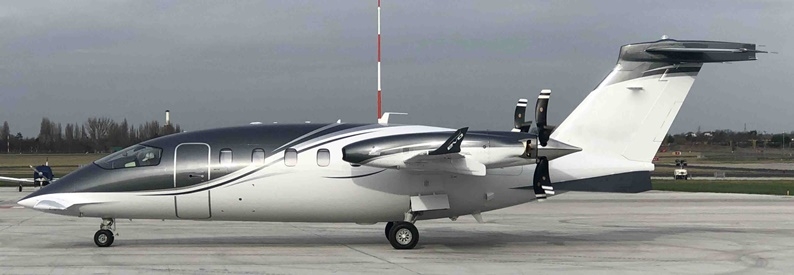AirGO Private Airline (XGO, Mainz) plans to renew its fleet of Piaggio Avanti P180 EVOs but will stick with the type given its fuel-burn advantages and its unmatched efficiency on short-haul European business charters, Chief Executive Daniela Flierl told ch-aviation in an exclusive interview during the recent EBACE conference in Geneva.
"We used to have five. We sold the old ones. And we are just about to renew the fleet. We will have three this year and probably four, maybe up to five next year," she said.
Flierl said the type, albeit not widely used, is perfectly suited to the European private charter niche as, as it is the fastest turboprop type in service, the Avanti can fly faster than comparable very light jets and early-generation Cessna Citation CJs, and travel times are similar or only marginally longer than for many other jet variants. It is also significantly more fuel-efficient than the Cessna Citation XLS, which has a comparable cabin size.
"It ticked so many boxes, and it's so fuel efficient. When we were launching, we already thought it would make sense to be fuel efficient if you fly just an average of 2.5 people. And this has paid off over the years, and it pays off today," she opined.
However, in the early days of operations, AirGO had to dispel some misconceptions about the use of turboprops in business aviation. In particular, potential customers were concerned about speed, noise, vibration, and cabin size. However, given the unique design of the Piaggio Avanti, those issues were moot.
Niche type
As a niche operator with a niche product focusing on very high quality, AirGO is able to charge a small premium for the chartering of its aircraft. However, Flierl emphasised that this is compensated for by the much lower fuel bill customers get. That said, AirGO attracts clientele based on its "unique ratio of comfort, service level, and efficiency," rather than on pricing, she highlighted.
Another advantage of the P180 is its lower purchase price. Although AirGO took the strategic decision to focus on the P180 in the early 2000s, it remains an aircraft management specialist, and each aircraft is owned by a customer. While exact availability for charter remains dependent on the owner's preferences, Flierl said that, in general, its customers are happy to charter out their aircraft as much as possible.
Even though the Avanti is a relatively niche type, Flierl stressed that AirGO is able find new airframes on the market due to its deep knowledge and contacts in the market; it is currently conducting pre-purchase inspections on two aircraft. Likewise, it has had no problems sourcing spare parts either.
"This is always a story people would tell us - that we would not get parts for the aircraft. It's just not true. We have never had a long AOG down time due to missing parts. They can happen due to the complexity of what needs to be done, but not missing spares," Flierl said.
She however conceded that a bigger issue is extended engine maintenance time. The Piaggio P180 is powered by Pratt & Whitney Canada PT6A-66B turbines and thus affected by the overall bottlenecks that have plagued Pratt & Whitney maintenance.
Future of the fleet
Looking ahead, AirGO intends to remain focussed on the Avanti. It briefly looked into diversifying into the Praetor 600s when two of its existing customers approached it about an opportunity to buy the jets. However, given their low availability on the pre-owned market and long wait times for new aircraft, AirGO is not currently pursuing the project intensively.
Despite Piaggio Aerospace going into extraordinary administration and insolvency in recent years, and its American subsidiary filing for US Chapter 11, Flierl is not concerned about the P180's outlook. The Italian manufacturer is currently active, looking for new investors, and received a substantial number of EOIs in 2023. The type's existing committed user base will also support the P180, Flierl believes.
"Even if they were to stop production one day, I would not be worried about our ability to continue operating the type. Of course, we will look at the long-term future. However, I would probably then look into what's really new. I would not buy an old design conventional jet," she said, hinting at opportunities presented by new zero-emission aircraft which fits into the carrier's strategic emphasis on sustainability, underpinning the initial choice of a fuel-saving turboprop. AirGO started implementing its own book and claim system for sustainable aviation fuels (SAFs) in 2019 and has had it fully operational on the market since March 2020.
German AOC
AirGO has a single AOC in Germany and has no plans to transition abroad, even though its aircraft owners are mostly from other countries. Flierl said the AOC's flag is not a relevant factor for the owners, who can own their aircraft through foreign entities. She argues that as a country with a reputation for good regulation, Germany is attractive to international business. Given the convergence of pilot salaries, it is no more expensive than in other European countries.
"I don't see [the environmental pressure on business aviation] as a challenge. Everybody should see it as an opportunity," she said.
